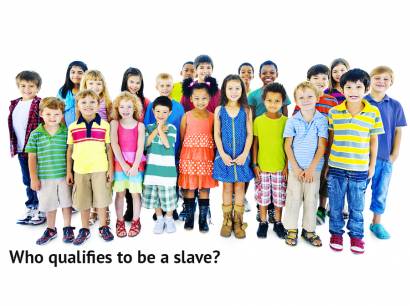This Week's Story
Conversation with Lincoln: Our belief in freedom is worthless, if our words make slaves.

This Week’s Story relives American history and the Bible through brief inspiring stories presented on mp3 audio recordings and text for reading.
A Temporary Bandage
Silence hovered. Abe Lincoln and his law partner Billy Herndon had no words. The news had arrived. The U.S. Congress had voted and the Compromise of 1850 was now law. The United States would survive, and slavery would continue.
Billy sighed. “Abe, is there any good news in the Compromise?”
“The biggest slave market in North America is to be closed.”
“Where is it?”
“It’s in our capitol, Washington, D.C. Where justice should be protected, thousands of slaves have been shackled and sold. There is good news. California will be admitted into the United States as a free state. However, it’s an abomination that the Fugitive Slave Act is in the Compromise.
“The Act is a miserable monstrosity of law. You and I, all citizens, are required to help catch runaway slaves anywhere in the country. No longer can an escaped slave find freedom in any northern state. If a slave reaches Canada, then he or she can be safe from slave catchers and punishment.”
“Abe, I hate slavery. It tore my family apart. How long will it last in our country?”
“I don’t know, but we must stop making decisions based on our selfishness. The foundation for our freedom is stated in our Declaration of Independence. It must be more than babble. We recite its lines, ‘We hold these truths to be self-evident, that all men are created equal, that they are endowed by their Creator with certain Unalienable Rights, that among these are Life, Liberty, and the pursuit of Happiness.’”
“Abe, Americans believe those words.”
“Billy, our belief is worthless if our actions make slaves of babies, children, mothers, fathers, grandmas and grandpas, and rip their families apart.”
“Your words are dangerous.”
“Billy, I’ve never taken a strong public stand against slavery. I had believed that slavery would gradually disappear in the United States. I see now that will not happen.
“Slavery is a great evil. The Founding Fathers knew that it was, but they could not agree what to do about it.
“A man is a man no matter what color his skin is. The black man is a human being. God created him to be equal. The Bible makes this clear and the Declaration of Independence affirms it.
“The spirit of our Declaration is that we Americans will not be governed without our consent. How dare we deny slaves the right to consent to be governed? Slavery allows the enemies of freedom to call us hypocrites.”
“Abe, I agree, but the voices for slavery are strong. They have shouted in Congress, ‘Slaves are property and the Constitution protects property.’ ‘Slavery is a decision for individual states to make.’ ‘In the south, all men are equal. Of course, that means white men.’ ‘The Negro may be your equal, but he is not mine!”
“Billy, none of those arguments cures the poison of slavery in a human soul.”
Ten years after this discussion, Abe Lincoln won the election on November 6, 1860 to become the first Republican president of the United States. The Compromise of 1850 had been a temporary bandage. The deadliest war in American history soon began. In the midst of the Civil War, Abraham Lincoln issued the Emancipation Proclamation freeing all slaves in the United States. The Proclamation began a painful journey to freedom and reconciliation that continues to challenge the United States.
This is Barbara Steiner with the question: What freedoms are necessary in the United States? Please visit thisweeksstory.com.
<< previous story] [next story >>
We invite your comments! [click here to comment]
This Week's Story is a non-profit supported by listeners. [click here to make a donation]
 click here to play audio
click here to play audio